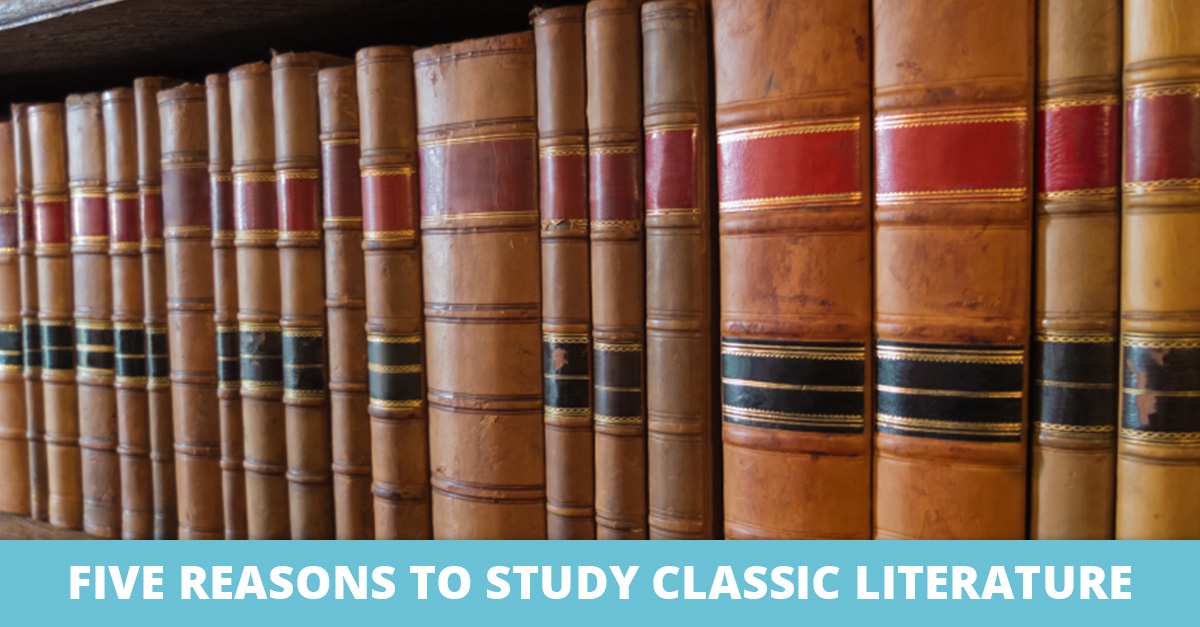Five Reasons to Study Classic Literature
Posted in Homeschool View on Thursday, December 2, 2010
 According to the 2002 Survey of Public Participation in the Arts, a declining percentage of Americans are reading literature. In particular, today's young adults are bypassing classic plays, poetry, and novels that embrace noble ideas, aspirations, and creative thought.
According to the 2002 Survey of Public Participation in the Arts, a declining percentage of Americans are reading literature. In particular, today's young adults are bypassing classic plays, poetry, and novels that embrace noble ideas, aspirations, and creative thought.
Alpha Omega Publications® is counteracting this alarming trend by providing both American Literature and British Literature courses for your child. Available in Switched-On Schoolhouse®, LIFEPAC®, and Monarch™, these semester-long courses are sure to develop an appreciation for the classics in your child. Need further convincing? Consider these five reasons to invest in a literature elective for the second semester:
Literature improves communication skills.
The easiest way to improve vocabulary, writing, and speaking skills is to study literature. While reading classic literature, your children will learn from authors like John Bunyan, William Blake, William Wordsworth, Lord Byron, John Keats, and Robert Browning. New words will be added to their vocabulary, and they'll express themselves with a new style that will also improve their writing and composition skills.
Literature teaches you about yourself.
Since people think and feel the same as they did hundreds of years ago, the lessons learned from the characters and stories of yesteryear remain applicable to life today. Literature is full of human reactions that help children understand the nature and condition of the human heart. Poems, essays, diaries, and narratives bridge the gap of time as children explore the author's message and lessons on life. As your children respond to these lessons from the past, they also become more aware of today's problems.
Literature teaches about the past.
Just as history records the past, literature also reflects mankind at a specific point in time. Civic and historical knowledge is revealed, and children gain a perspective of other cultures and their viewpoints. History comes alive in imagination and thought as they combine literature's portrayals of past events with ordinary lives.
Literature cultivates wisdom and a worldview.
Issues of the world are connected to the emotions of the heart, and good principles are formed when reading the classics. Children gain discernment as they view what is healthy, as well as destructive in the world. Good and evil, injustice, and its consequences all challenge them to make changes in society.
Literature also plays a large role in the development of a nation's identity. The early Greek youths learned morals and political ideologies from the epics of Homer. Likewise, the abolishment of slavery in America's early history had more to do with Uncle Tom's Cabin than a politician's speech. Literature also helps children develop community pride and respect for other cultures.
Literature entertains.
Although we live in a technological age, reading the classics is still fun. The characters, stories, and language engage the mind, upgrade leisure time, and transport children from enjoying the mediocre to embracing the excellent.
Have you included the classics in your homeschool reading program? If so, what is your favorite?
Comments(0 comments)